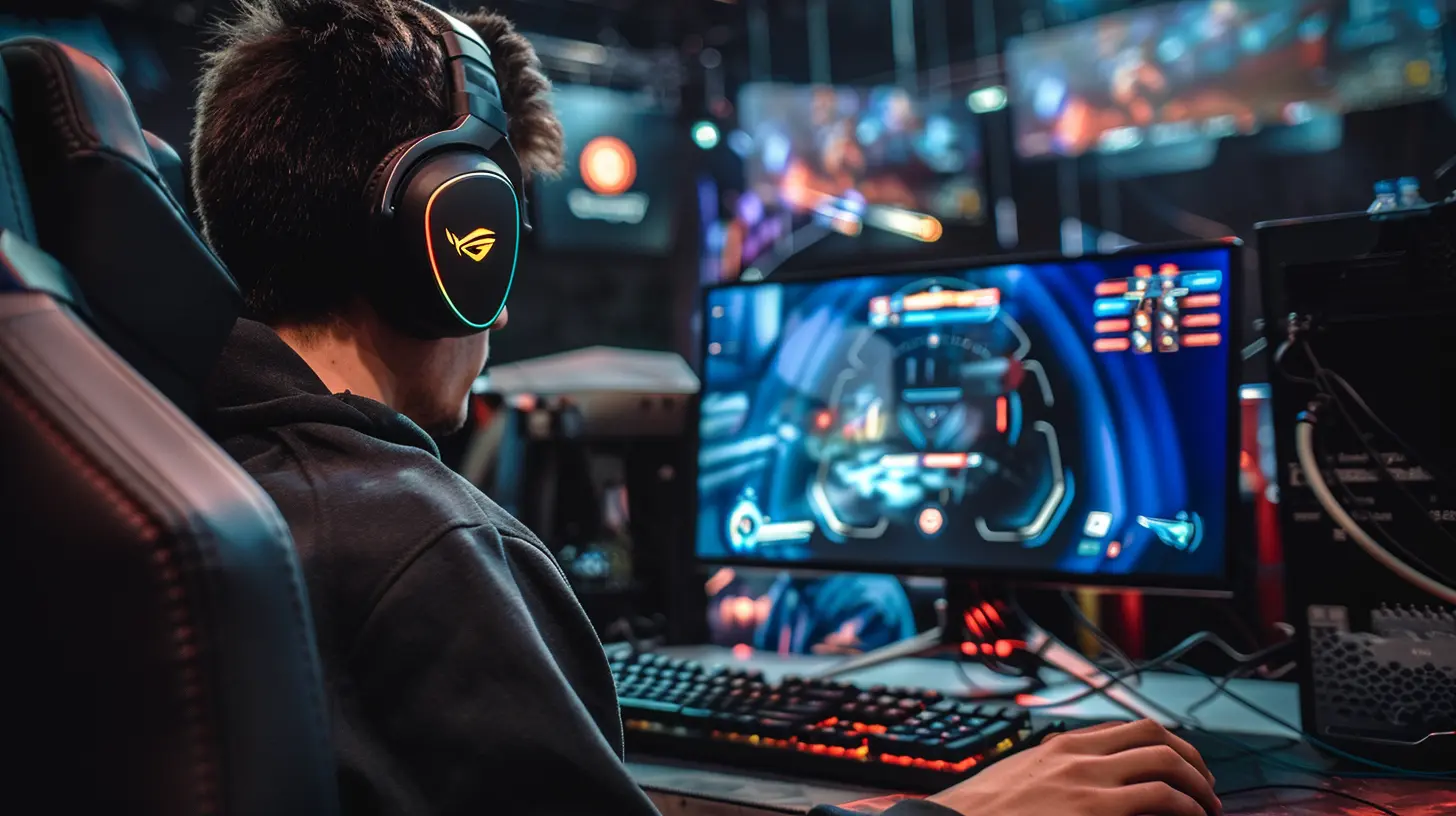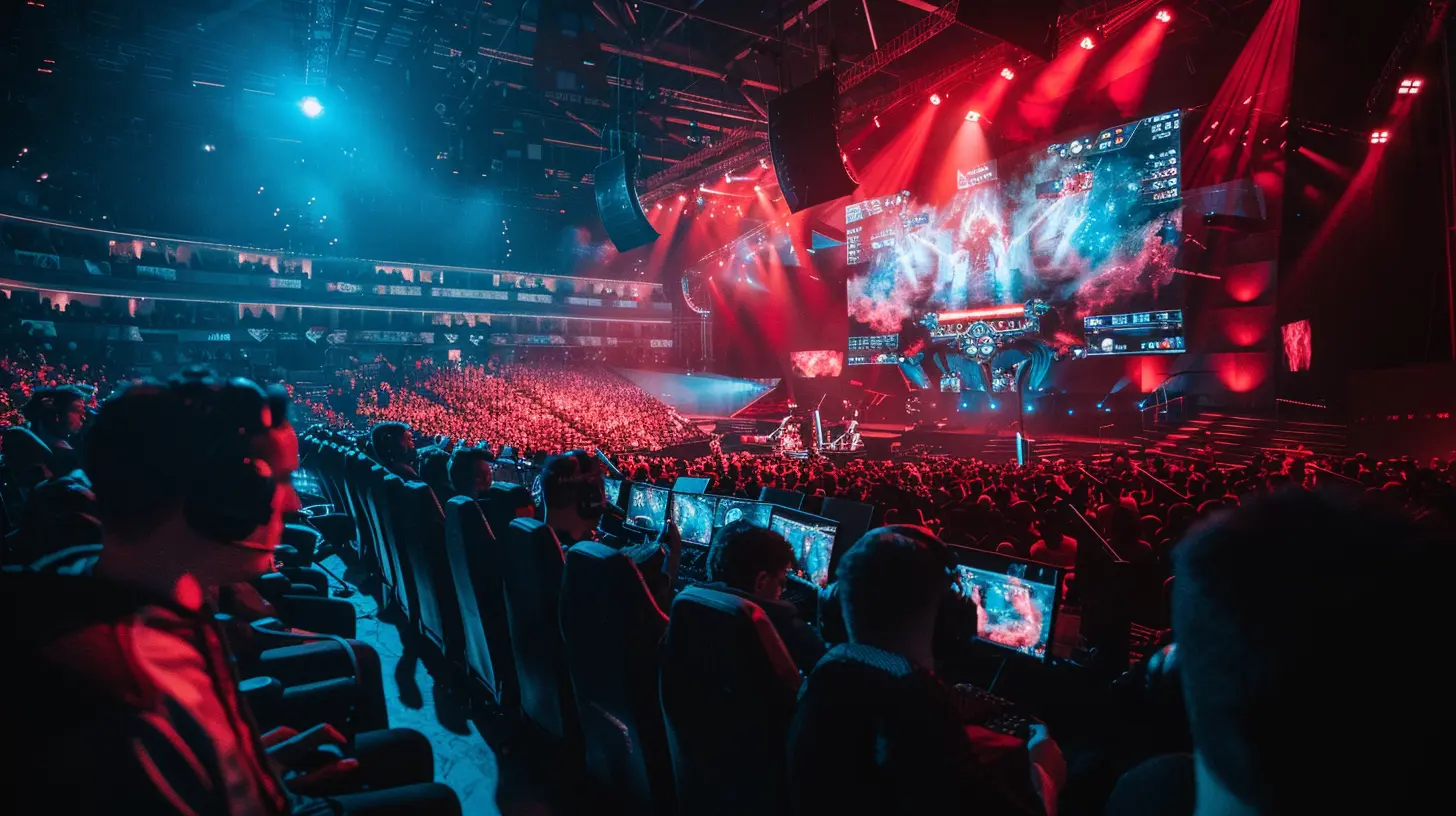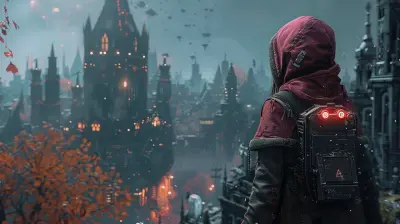Exploring the Ecosystem of Amateur Esports Teams Climbing the Ladder
12 October 2025
Let’s face it: esports is no longer just a pastime or a quirky subculture—it’s a full-blown phenomenon. From the dazzling lights of international tournaments to the grassroots scrimmages taking place in living rooms, esports has created a digital battleground where gamers can turn their skills into a career. But here's the thing: not everyone starts at the top.
For every team lifting a trophy on the world stage, countless amateur esports teams are grinding day in and day out, hoping to climb the competitive ladder. These underdogs are the lifeblood of the gaming community, and their journey is every bit as fascinating as the headline-grabbing plays of pro teams. So, let’s break down what makes this ecosystem tick and what it takes for these amateur teams to level up. Trust me, it's way more complex than just "git gud."
The Rise of Amateur Esports: From Casual Gaming to Serious Competition
If you think esports is just for the pros, think again. Amateur esports is booming, fueled by accessible games, passionate players, and the dream of turning a hobby into something bigger. Remember when you and your friends would fire up a game of Call of Duty after school? Now imagine turning that squad into a team that competes in online tournaments and esports leagues. Sounds awesome, right?Platforms like Discord, Twitch, and Twitter have made it easier than ever for gamers to connect, form teams, and share strategies. Amateur players now have access to resources that were once only available to professionals, such as coaching, analytics tools, and online communities. If you’ve got the drive and a solid internet connection, the path to competitive gaming is wide open. But that’s just the beginning.
Building the Foundation: Starting an Amateur Esports Team
Creating an amateur esports team is no small feat. It’s not just about getting a group of friends together and jumping into a tournament. Nope—it’s about building synergy, defining roles, and most importantly, maintaining a positive mindset even when things don’t go your way.So, where do you start? First off, you need teammates who share your goals. Whether you’re dreaming of reigning supreme in League of Legends or dominating the battlefield in Valorant, finding like-minded players is the key to long-term success. Chemistry matters as much as skill—maybe even more. After all, a team that doesn’t communicate well is like a car with no steering wheel. You’re going nowhere fast.
Team Roles and Responsibilities
Once you’ve got your squad, it’s time to assign roles. Every competitive game has specific roles, and each player needs to know their part. For example:- In Overwatch, you need tanks, damage dealers, and support.
- In Dota 2 or League of Legends, you’ve got carries, supports, and junglers.
- In CS:GO, one player often takes the lead as the in-game leader (IGL) while others fill roles like AWPer or entry fragger.
Think of it like forming a band. You can’t all be lead guitarists. Someone’s got to be the drummer, someone’s on vocals, and someone’s got to write the songs. Balance is essential if you want to make sweet, sweet music—or in this case, secure those Ws.
The Grind: Practice, Strategy, and Tournament Play
Once your team is set, the real work begins. This is where the esports grind becomes a lifestyle. It’s not just about playing games for fun anymore; it’s about deliberate practice, learning from mistakes, and developing strategies.Practice Makes (Almost) Perfect
Pro players often clock in 8–12 hours of practice daily. For amateurs, that might not be feasible (because, oh yeah, life), but quality is more important than quantity. Focus on structured practices where you analyze your gameplay, experiment with strategies, and work on teamwork. Tools like replay analysis and coaching sessions can help you pinpoint weaknesses and improve them.Scrims and Tournaments
Scrimmages (a.k.a. "scrims") are the bread and butter of amateur esports. These are practice matches against other teams, and they’re crucial for honing your skills in a competitive environment. It’s one thing to master mechanics in solo play, but working with a team under pressure? That’s a whole new ball game.Then there are tournaments. These are where you can test your skills against other amateur teams and start building a name for yourselves. Websites like Battlefy, Challonge, and FACEIT are great platforms for finding amateur competitions.
Learning from Losses
Let’s be real: losses are going to happen. They’re inevitable. But instead of letting them crush your spirit, use them as opportunities to learn. Watch your replays, analyze what went wrong, and make adjustments. Every defeat is just a stepping stone to improvement.
The Support System: Community, Sponsors, and Social Media
Success in amateur esports isn’t just about skill; it’s also about building a solid support system. This includes engaging with the gaming community, seeking sponsorships, and growing your team’s online presence.Building a Community
The esports world is all about connections. Join Discord servers for your game of choice, participate in forums, and network with other players. Having a supportive community can open doors to scrims, coaching, and even friendships that make the grind a little less lonely.Sponsorships and Funding
Let’s get this out of the way: amateur esports isn’t cheap. From gaming peripherals to tournament entry fees and even travel expenses for offline events, costs can add up. While some teams self-fund (hello, ramen noodles), others seek small sponsorships to offset expenses. Brands love partnering with up-and-coming teams who have a strong social media presence. Speaking of...The Power of Social Media
Social media is your team’s megaphone. Platforms like Twitter, Instagram, and TikTok are perfect for showcasing your gameplay highlights, posting updates, and interacting with fans. Even if you don’t have a massive following, being active on social media can catch the attention of sponsors, tournament organizers, and other players.The Mental Game: Staying Motivated and Avoiding Burnout
Let’s talk about the elephant in the room: esports is mentally taxing. Long hours of practice, high-pressure tournaments, and the occasional toxic teammate can take a toll on your mental health. So how do you stay grounded?Avoiding Burnout
Burnout is real, and it can hit hard. To avoid it, make sure to take breaks and set boundaries. Mix in some time for relaxation, whether it’s watching your favorite streamer, hitting the gym, or just zoning out to Netflix. Mental stamina is just as important as mechanical skill.Celebrating Small Wins
Climbing the ladder in esports is a marathon, not a sprint. Celebrate the small victories—whether it’s winning a scrim, improving your team synergy, or just having a killer game. These little moments of joy keep the grind from feeling like a grind.The Dream: Turning Amateur Success into Professional Opportunities
Here’s the ultimate goal for most amateur esports teams: going pro. While not every team will make it to the big leagues, the skills you develop as an amateur player—teamwork, strategic thinking, and adaptation—can open doors to all sorts of opportunities in the gaming world.Joining Tier 2 or Tier 3 Teams
Think of amateur esports as a stepping stone. If your team starts racking up wins and developing a reputation, you may catch the eye of Tier 2 or Tier 3 organizations. These teams act as feeders for the biggest names in esports and are a great way to gain exposure.Content Creation and Coaching
Even if going pro isn’t in the cards, you can still turn your passion into a career. Many amateur players pivot to content creation, coaching, or even casting. The skills you’ve honed as a competitive player are valuable across the entire gaming ecosystem.Final Thoughts: Why the Amateur Esports Ecosystem Matters
There’s something magical about the amateur esports journey. It’s not just about the wins or losses—it’s about the camaraderie, the growth, and the pure love of the game. The ecosystem of amateur teams climbing the ladder is what keeps esports fresh, vibrant, and full of surprises.Whether you’re just starting your journey or cheering from the sidelines, remember: today’s amateurs are tomorrow’s pros. And who knows? The next world champion might just be grinding away in a scrim right now.
all images in this post were generated using AI tools
Category:
Esports TeamsAuthor:

Lucy Ross
Discussion
rate this article
1 comments
Lauren Howard
Amateur esports teams are the lifeblood of competitive gaming. Their relentless drive and unyielding passion are reshaping the landscape—get ready for the next wave of champions to rise!
October 12, 2025 at 2:41 PM

Lucy Ross
Absolutely! Amateur esports teams are essential for innovation and growth in competitive gaming. Their passion and determination are paving the way for future champions!


